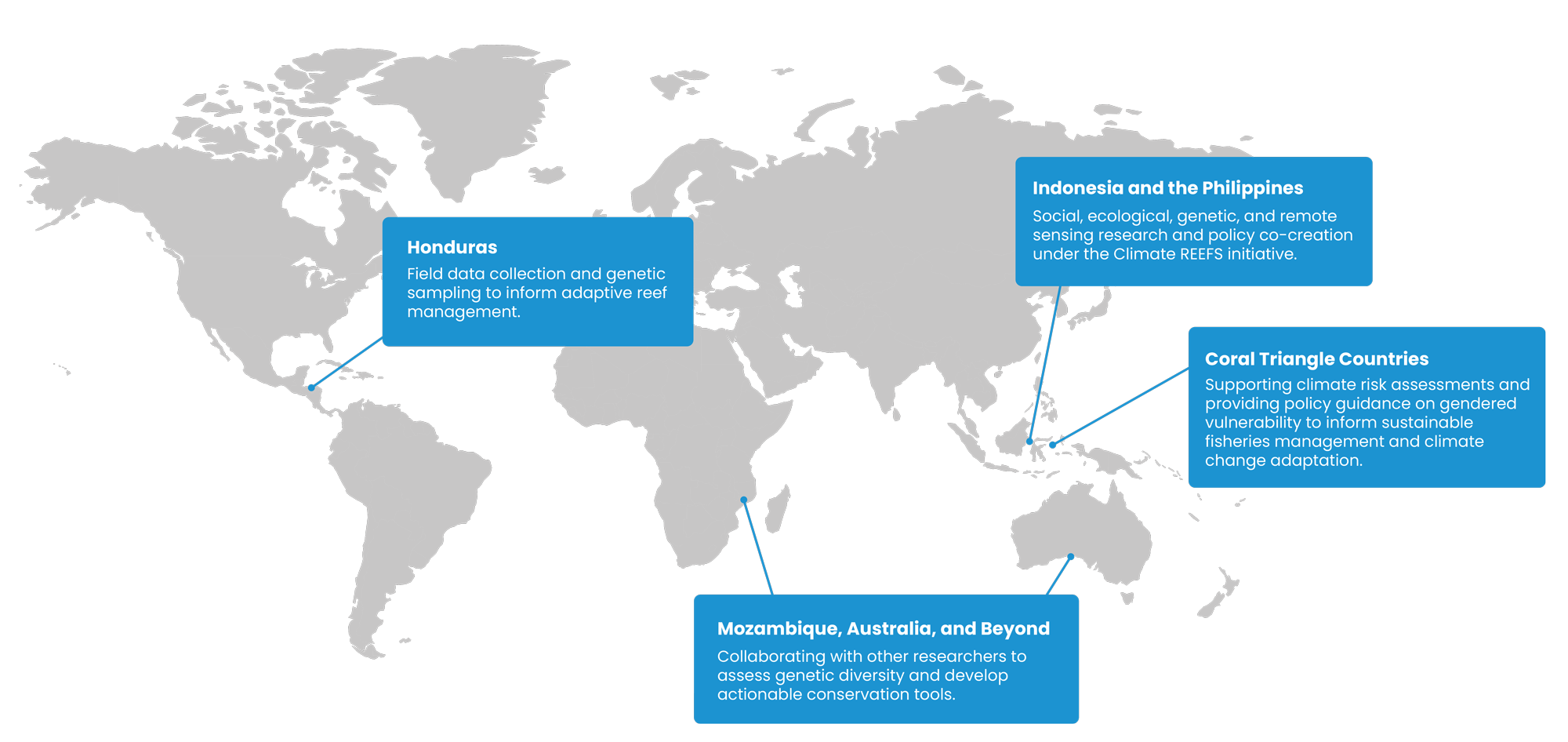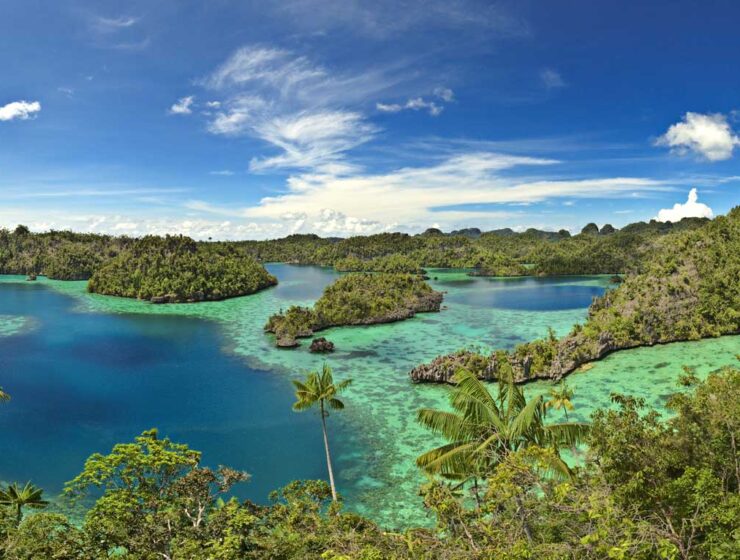Scientific Research for Actionable Insights
Our team transforms groundbreaking research into actionable solutions, equipping communities and conservationists worldwide to protect coral reefs and enhance their ability to adapt to climate change.
We believe strong science, key alliances, and community engagement are essential to saving and supporting reefs.
Driving Solutions Through Science
Assess Coral Adaptive Capacity
Coral reefs are threatened by pollution, overfishing, and climate change. We launched cutting-edge research to understand which conservation strategies best help corals adapt to the effects of climate change. Our scientific research reveals that protecting large, diverse , and connected reef networks significantly increases their ability to adapt to warming waters. Read more about coral adaptation here.
Translate Science Into Tools
Current management approaches often lack resources to incorporate genetic data. CORAL is pioneering solutions by working to develop a globally accessible tool to estimate coral reef genetic diversity using remote sensing. This tool will empower practitioners worldwide to implement climate-smart reef management strategies.
Influence Conservation Policy
We collaborate with global partners to integrate science into conservation policy. From contributing to a framework to enhance the Mesoamerican Reef’s resilience against climate impacts, to supporting marine spatial planning in the Coral Triangle, we ensure that our research shapes impactful solutions on a global scale.
Where We Work
From Local Sites to Global Influence
Our global conservation science efforts span three oceans and numerous reef ecosystems.


A word from our conservation science director
“Coral reefs have the remarkable ability to adapt, but only if we take immediate action to protect their genetic diversity and connectivity AND substantially reduce climate emissions. Our work is about creating the tools and partnerships that support local managers and coral reefs in adapting to climate change”
– Dr. Helen Fox
Join Us in Saving Coral Reefs
Your support fuels groundbreaking science that equips communities and practitioners with the tools they need to protect coral reefs. Together, we can ensure these vital ecosystems—and the life they sustain—thrive for generations.
Scientific Articles
Evaluating the spread of stony coral tissue loss disease in the Bay Islands, Honduras
Current ecological theory predicts that random networks with dispersal shortcuts connecting distant sites can promote persistence when there is no capacity for evolution. This paper demonstrates that incorporating evolution and environmental heterogeneity fundamentally alters theoretical predictions regarding persistence in ecological networks.
Coral conservation in a warming world must harness evolutionary adaptation
To facilitate evolutionary adaptation to climate change, we must protect networks of coral reefs that span a range of environmental conditions — not just apparent ‘refugia’.… Continue Reading →
Exploring relationships between gender and collective action in artisanal fisher associations of Central Chile
Artisanal fisher associations in Chile with women members show higher efficiency and cooperation than male-only groups. Women join for belonging, men for income, highlighting the need for gender-inclusive fisheries policies. Read More >… Continue Reading →
[Abstract]Participation and patrols promote sustainable fisheries in the Mesoamerican Reef Region.
Here we present a case study of Los Micos Lagoon, a coastal lagoon responsible for seeding fish biomass in sites with some of the highest live coral cover in the Mesoamerican Region, the Tela Bay (Honduras) reefs.… Continue Reading →
[Abstract] Can the Allen Coral Atlas indicate adaptive capacity of coral reefs?
We explore the extent to which habitat complexity, as detected by the Atlas, can inform adaptive capacity. Beta-diversity is a common index used to assess environmental heterogeneity within natural systems, indicating the change in species/habitat composition across a landscape.… Continue Reading →
Science Videos
Our scientific work is built around collaborations. It unifies academics, nonprofits, corporate partners, and conservationists, and it bridges the gap between science and communities. Our work at the local level involves communities in science that typically occurs behind closed doors—our coral reefs are better off when we are all strengthened with more information.









